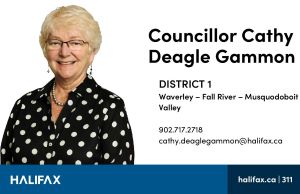Couples need up to 27 years to save enough money to buy a home in Canada’s largest cities.
But, for single buyers, a lifetime might not be enough
CANADA: Buying a home is a hurdle race, and the down payment is the first — and possibly most discouraging — obstacle.
That’s because, for many, 20% is simply out of reach. For others, even 5% seems utopian. So, what about a 50% down payment? Or even 80%?
Realistically speaking, these are the numbers that potential homebuyers need to contemplate.
In order to get an affordable mortgage — meaning one that wouldn’t eat up more than 30% of their income — buyers would have to cover what the loan doesn’t, which could represent much more than the traditional 20% that everyone expects.
ADVERTISEMENT:
In Atlantic Canada’s Cape Breton, NS, the saving timeline gap between singles and couples is among the shortest in the country: With a difference of less than 5 years, the city provides nearly equal opportunities for ownership. However, in Halifax, NS, single homebuyers face a tougher journey, requiring up to 15 years more to save compared to couples.
Whether they’re single or a couple, covering the difference between the home price and the mortgage is an incredible financial effort.
And, based on the 50/30/20 rule (where 20% of the income should go toward savings), it’s a lengthy one, as well: It would take years upon long years to save enough to buy a home, so home seekers could rightfully start feeling like homeownership is not an attainable goal.
Plus, speaking in percentages doesn’t even begin to describe the tough conditions in Canada’s most expensive urban centres: In the 16 cities where the benchmark home price is higher than $1 million, even a starter home (priced at half the local composite price) seems out of reach.
ADVERTISEMENT:
However, a few of Canada’s largest cities are breaking this bleak trend and emerging as real homeownership havens:
There, no matter if they’re single or coupled, first-time buyers have an almost equal chance at becoming homeowners without spending their entire lives saving for their home.
So, which Canadian cities had the shortest saving timeframes for singles and couples? And were there any large urban hubs where single buyers could save up in as little time as couples?
If they want an affordable mortgage, saving enough money to cover the difference between the price of a starter home and the bank loan would take both single and coupled homebuyers quite a few years.
ADVERTISEMENT:
- 4 or 29 Years: The nationwide average to save enough for a starter home (meaning a home half the composite price) is now nearly 4 years for couples and close to 29 years for single people.
- 3 to 75 Years: That’s how much time a buyer on a single income would need to cover the difference between the affordable bank loan and the starter home price in Canada’s 70 largest cities.
- 2 to 27 Years: Couples fared better, but would still need 27 years at most to save enough in the priciest markets, as compared to less than two years in 11 of Canada’s largest and more affordable cities.
- ADVERTISEMENT:
- Fast-Lane Cities: In Strathcona County, AB; Lévis, QC; and Regina, SK, the difference between singles and couples’ timeframes for saving was the shortest. This means the affordability gap between single buyers and couples was the smallest, and buyers would have almost equal chances at becoming owners, no matter their status.
- Marathon Cities: At the other end of the spectrum, in Richmond Hill, ON, single-income buyers would need nearly 50 years more than couples to save enough for their future home. Newmarket, ON, and Vaughan, ON, rounded out the top three with a 40-year difference.
For all the data and more details please check out: https://www.point2homes.com/news/canada-real-estate/singles-couples-saving-for-home.html





































